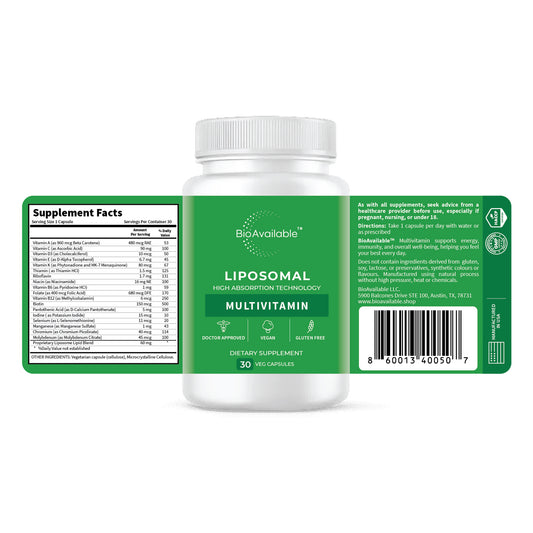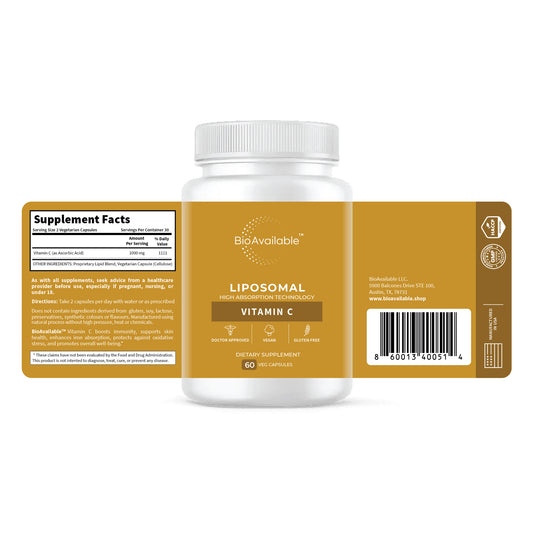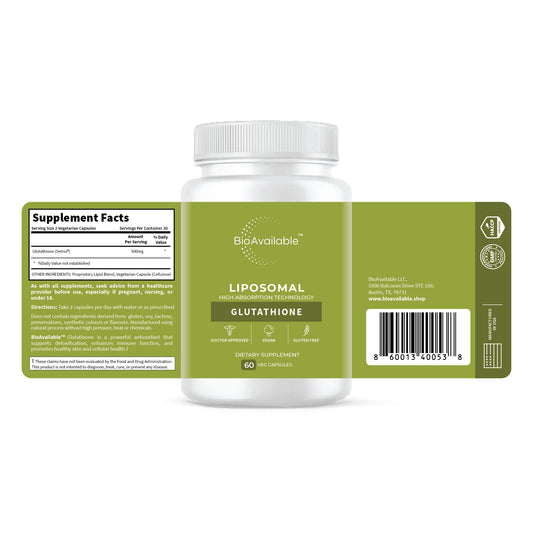
Gut Check: How Poor Gut Health Disrupts Nutrition, Digestion, and Metabolism
Share
Your gut is more than just a digestive organ—it's a complex ecosystem that influences nearly every aspect of your health. When this system is out of balance, it can lead to nutrient deficiencies, digestive discomfort, and metabolic dysfunction. Let’s explore how poor gut health affects nutrition and how targeted supplementation can help restore balance.
1. Impaired Nutrient Absorption
Poor gut health—often caused by dysbiosis, inflammation, or conditions like IBS and leaky gut—can damage the intestinal lining and reduce its ability to absorb nutrients effectively. This can lead to deficiencies in:
- Iron – causing fatigue and anemia
- Vitamin B12 – essential for nerve function and red blood cell formation
- Calcium and Magnesium – vital for bone health and muscle function
- Fat-soluble vitamins (A, D, E, K) – important for immunity, vision, and blood clotting
The gut microbiota also plays a role in synthesizing certain vitamins like B5, B9, B12, and K.
2. Disrupted Digestion
An imbalanced gut microbiome can impair enzyme production and motility, leading to:
- Bloating, gas, and discomfort
- Constipation or diarrhea
- Food intolerances and sensitivities
These symptoms reduce the efficiency of digestion and nutrient breakdown.
3. Metabolic Dysfunction
Gut microbes influence key metabolic hormones like insulin, leptin, and ghrelin. Dysbiosis can:
- Promote insulin resistance and increase the risk of type 2 diabetes
- Disrupt appetite regulation, leading to overeating
- Contribute to weight gain, especially visceral fat
Short-chain fatty acids (SCFAs), produced by gut bacteria, help regulate glucose and lipid metabolism. A reduction in SCFA-producing bacteria is linked to metabolic disorders.
4. Inflammation and Immune Dysfunction
The gut barrier protects against pathogens and toxins. When compromised, it allows harmful substances to enter the bloodstream, triggering chronic inflammation. This can:
- Worsen autoimmune conditions
- Impair nutrient transport
- Increase susceptibility to infections
5. Mental Health and the Gut-Brain Axis
The gut produces neurotransmitters like serotonin and GABA. Poor gut health can affect:
- Mood and anxiety levels
- Cognitive function
- Stress response
This connection is known as the gut-brain axis, and it's increasingly recognized in mental health research.

6. Supplementation to Support Gut-Impaired Nutrition
When gut health is compromised, dietary supplements can help fill nutritional gaps and support key bodily functions:
Essential Vitamins and Minerals:
- Vitamin D – supports immune function and inflammation control
- Vitamin B12 and Folate (B9) – crucial for energy, brain health, and red blood cell production
- Iron – necessary for oxygen transport and energy
- Magnesium and Calcium – support muscle, nerve, and bone health
- Zinc and Selenium – aid immune function and antioxidant defense
Probiotics and Prebiotics:
- Probiotics (e.g., Lactobacillus, Bifidobacterium) help restore microbial balance and improve digestion
- Prebiotics (e.g., inulin, resistant starch) feed beneficial bacteria and enhance SCFA production
Omega-3 Fatty Acids:
- Reduce inflammation and support gut barrier integrity
Supplements should be tailored to individual needs and ideally guided by a healthcare provider, especially if gut issues are chronic or severe.
7. Dietary and Lifestyle Strategies
To support gut health naturally:
- Eat fiber-rich foods: Whole grains, fruits, vegetables, legumes
- Include fermented foods: Yogurt, kefir, kimchi, sauerkraut
- Avoid processed foods and excess sugar
- Stay hydrated and manage stress
- Exercise regularly: Physical activity supports microbial diversity

Final Thoughts
Poor gut health can silently sabotage your nutrition, digestion, and metabolism. But with the right dietary strategies and targeted supplementation, you can restore balance and support your body’s essential functions. Your gut is your gateway to wellness—nourish it wisely.
References
[1] Zheng et al., Foods, 2024. https://www.mdpi.com/2304-8158/13/9/1345
[2] Ehrenberg & Cooper, Medical Research Archives, 2025. https://www.researchgate.net/publication/391433115_Understanding_the_Mechanisms_and_the_Impact_of_Food_and_Nutrition_on_Gut_Health_A_Narrative_Review
[3] Valdes et al., BMJ, 2018. https://www.bmj.com/content/361/bmj.k2179
[4] Marcari et al., Current Nutrition Reports, 2025. https://link.springer.com/article/10.1007/s13668-025-00614-7








